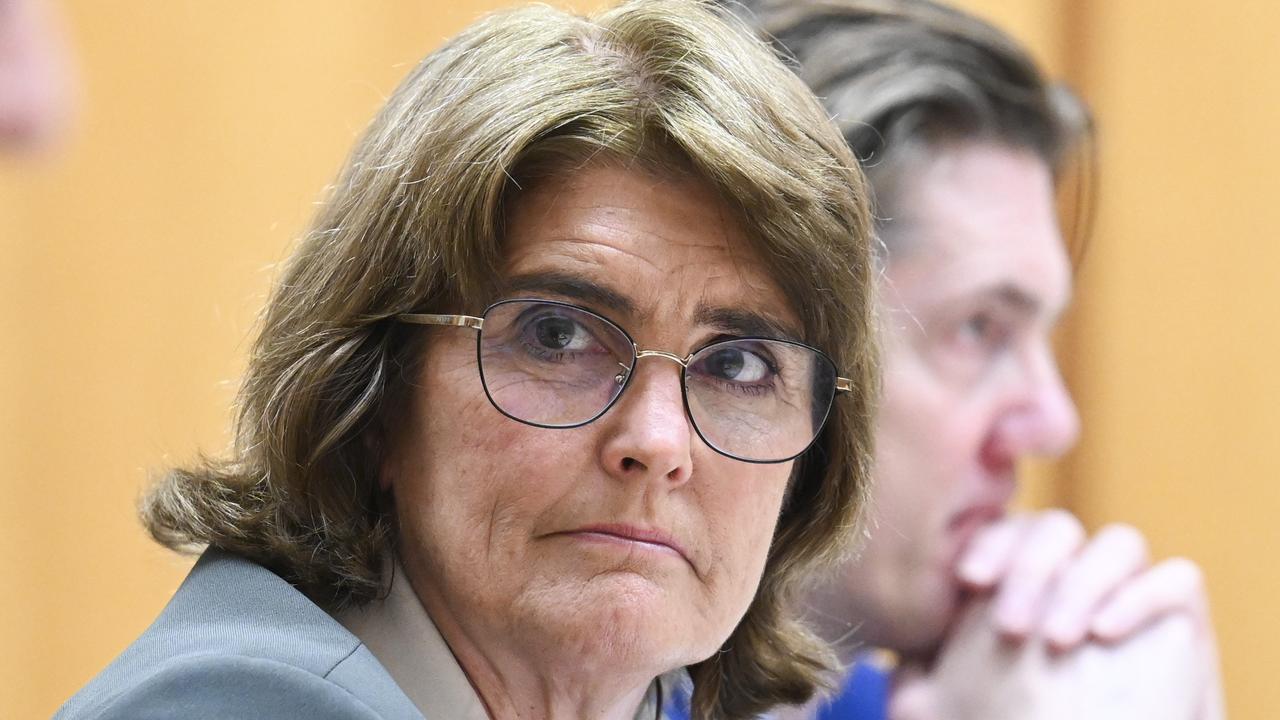Can we afford paid parental leave?
CAN we really afford parental leave? The government’s crackdown has sparked renewed debate about the benefits of the scheme. So where do Aussies stand?

Fed Budget
Don't miss out on the headlines from Fed Budget. Followed categories will be added to My News.
THE Abbott government’s move to crack down on so-called ‘double dipping’ of mothers accessing both government and employer paid parental leave schemes has caused outrage, but it has also reignited the debate around the merits of government-funded paid parental leave.
Under the changes, which the government expects to save around $1 billion a year, around 34,000 mothers whose employer already pays as much or more than the government will lose their $11,500 payments.
Another 45,000 will have their employer-provided scheme topped up to the government level. It represents a complete backflip from the Prime Minister’s earlier ‘signature’ policy of a far more generous paid parental leave scheme.
“People are double dipping. They have their own, private paid parental leave schemes and then they’re going and getting a taxpayer parental leave scheme as well,” Treasurer Joe Hockey said, describing the situation as “patently unfair”.
But Kate Carnell, chief executive of the Australian Chamber of Commerce and Industry, says the plan will have major unintended consequences. “It’s hard to see why employers would keep paying parental leave if it meant the government stopped paying,” she said.
“Employers and employees would most likely look for other benefits that suited them so the government still paid the parental leave bill. The reason employers are paying additional leave entitlements is to give employees additional reasons to work for them.”
Matt Grudnoff, senior economist with the Australia Institute think tank, agreed. He said while he could see the government’s argument against double dipping, it clearly hadn’t thought through the consequences.
“The behavioural change will be huge. If an employer was offering the same or less than the government, they’ll just withdraw their scheme and save the money because the government will pay,” he said. “The government won’t save money but the employers will.”
The Australian Council of Social Services has called on the government to rethink its position. “[This] major dismantling of the government scheme now in place, which was designed by the Productivity Commission, and widely supported by experts and community representatives, should be strongly rejected,” ACOSS CEO Dr Cassandra Goldie said.
“The surprise announcement of cutting about $1 billion over the forward estimates from our investment in Australia’s first Paid Parental Leave Scheme is an extraordinary backflip, for short-term savings.
“We have gone from a government policy commitment to investment $6 billion more to ensure all new parents have access to six months of PPL at full income replacement, to one that significantly dismantles the modest scheme introduced by the previous government.”
Dr Goldie said the government scheme was always intended to complement workplace schemes. “Together these programs brought Australia closer to 26-week minimum provided in many other OECD countries,” she said.
“ACOSS has supported Australia working towards a paid parental leave extended to a minimum of six months, and ideally at income replacement levels. However, we have always said the big question to be addressed, ideally by the Productivity Commission, was how to fairly and efficiently fund such a scheme, starting from such a low base, with no paid parental leave entitlements until just a few years ago.”
Conservatives have welcomed the changes, however, with some using the opportunity to call for a complete rethink of paid parental leave.
Mikayla Novak, senior research fellow with conservative think tank the Institute of Public Affairs, while welcoming the crackdown on double dipping, said the government was sending “mixed messages” with its childcare package.
“This is basically unaffordable middle class welfare,” she said. “A family on $185,000 a year will probably obtain an additional $2500 in childcare subsidies. The government is partially rolling back [paid parental leave] while dolloping out this largesse.”
The IPA is fundamentally opposed to any government-funded parental leave scheme as they “crowd out” private sector agreements, she said. “We’re certainly very supportive of the private sector providing parental leave, but it should ultimately be the preserve of employees and employers.”
Matthew Taylor, research fellow at free-market think tank the Centre for Independent Studies, has previously argued for a HECS-style loan system instead of a PPL, in which the loan would be repaid by whichever parent’s income was higher.
He argues that current parental leave arrangements actually contribute to the gender pay gap, as many employers simply factor PPL arrangements into women’s salaries.
“One consequence of funding parental leave through the industrial relations system is that those people who would use the entitlements are seeing wage discounts,” he said. “If you make it a loan, and a joint liability for both parents, it shifts the cost onto the higher-earning parent.
“Mum benefits from parental leave, dad benefits, obviously the child’s not going to pay for it. If you set up that scheme to shift the cost onto the father, then there’s no need for women to suffer wage discounts to get that private workplace entitlement.”
Mr Taylor also questioned claims that businesses would simply cost shift to the government. “We’ve had a payment of full-time minimum wage for 18 weeks since 2011,” he said. “Any cost shifting that was going to happen has probably already happened.”
Finance Minister Mathias Cormann insists the decision is not at odds with the previous coalition policy, describing it as an “integrity measure to make sure the scheme was fair”, he told ABC radio on Monday.
Independent senator Nick Xenophon doesn’t regard existing arrangements as double dipping, but nor does he agree with ACTU president Ged Kearney who has accused the government of stealing from women.
Many employers had factored in the government scheme when working out what they could offer new parents. “You might want to allow a transitional period to allow those companies not to experience a quick, sharp shock,” Senator Xenophon told ABC radio.
— with AAP
Originally published as Can we afford paid parental leave?



